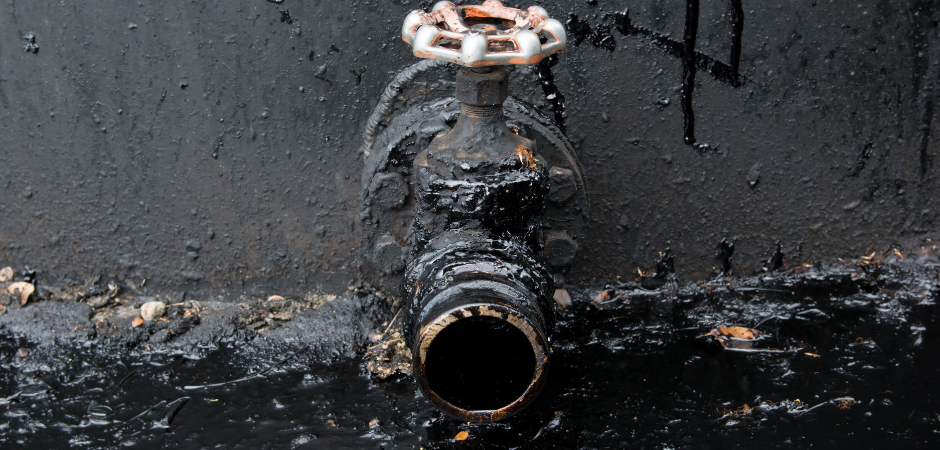“African leaders must advocate for people in the continent suffering from climate damages, not sell us out to Western governments”
10 November 2022

Full press conference of 10 November available on:
CAN: Climate Action Network Press Briefing on COP27 | UNFCCC
10 November 2022: According to a new report, Congo in the Crosshairs, oil and gas expansion in the Congo Basin is a rapidly accelerating existential threat to the global climate, and to the world’s second-largest rainforest – along with the tens of millions of people who live there.
Over 150 distinct ethnic groups call the Congo Basin home and over 35 million people, or 20% of populated places in Congo Basin countries, are now in existing or designated oil and gas blocks. The fossil fuel industry is pushing aggressively to exploit the continent, damaging communities and threatening lives and livelihoods.
These blocks are in protected areas of the DRC, which are particularly important for their biodiversity and the laws that protect them and immense cultural and social value for the people that live there.
On the anniversary of the killing of Ken Saro-Wiwa, the Climate Action Network press briefing today highlighted how people from across the continent are fighting back to protect their communities from the threats posed by fossil fuel and the companies and governments doubling down on their production.
Just yesterday, a new study by Global Witness showed that over 600 fossil fuel lobbyists have been granted access to the COP27 climate talks – that’s 25% more than last year.
At the press conference, Ana Osuna Orozco, Rainforest Foundation UK, said: “This report signals the worrying expansion of oil and gas extraction in the African continent, particularly in the Congo Basin. Oil and gas in Africa are set to quadruple if the current blocks set for exploration are going to be developed. 30% of oil and gas exploration blocks overlap 30% of dense tropical forests in Africa which 90% are in the Congo Basin which covers six Central African countries. In the Congo Basin, over 180 million hectares of dense tropical forests still remain and over 35% of these critical forests, or 64 million hectares (an area nearly twice the size of Germany), now overlap with existing or planned oil and gas blocks. They also overlap over 20% of populated territories by indigenous groups. Central African countries need to develop, but we must not fall into the trap of thinking that oil is the only way, as there is a huge potential for renewable energies”.
François Biloko, General Secretary of Réseau CREF, a leading environmental network in DRC, said: “We must not let a chaotic expansion of fossil fuels in the Congo Basin risk our precious tropical forests, biodiversity hotspots such as the Virunga National Park and the rights and livelihoods of forest communities who are already feeling the impacts of climate change. With its vast potential in renewable energies, DRC can lead the way to a prosperous green future”.
Omar Elmawi, Coordinator, Stop EACOP campaign, said: “The proposed EACOP pipeline poses great social, environmental, and economic risks to thousands of community members who live close to the proposed route of the pipeline throughout Uganda and Tanzania, as well as surrounding protected wildlife areas, water sources including the Lake Victoria Basin. The massive carbon emissions expected from the project, estimated at 34 million tonnes of carbon dioxide annually, make the project a carbon bomb that will exacerbate an already dire situation of debilitating climate impacts that are crippling climate-vulnerable regions such as Africa. When it comes to decisions on fossil fuels, there is no longer a choice to make. For the good of humanity and the planet, we must shun fossil fuels and embrace renewable energy solutions.”
Cheikh Fadel Wade, Network for Protection of Nature and Environment in Senegal, said: “Fishery is the first economy of Senegal, and we fear that fossil fuel exploitation will affect the livelihoods of the fishing communities. Senegal is one of the countries most affected by climate change, and that is why we fear that we will face a catastrophic destiny with this exploitation. Over one million people depend on fishing, most of them young men and women. This is a call for developed countries to not invest in fossil fuels in Senegal.”
Fadel Wade’s speech comes in the context of German chancellor Scholz aggressively pursuing deals with the Senegal government to drill for gas to power German industry. A move strongly opposed by European and African civil society, and one that would violate Germany’s commitment at COP26 to stop investing in new oil and gas overseas. (see notes to editors)
Babawale Obayanju – Environmental Rights Action, Nigeria, said: “The discovery and extraction of oil, gas and other mineral resources are equivalent to the declaration of war in that region. The continuous quest and hunger for more extractive activities in Africa have only brought about death and destruction. Our leaders cannot use COP27 as a trade fair to sell our resources while African people remain energy poor. We demand that they come here to demand climate reparations and finance for renewables and a just transition that is focused on empowering communities.”
Notes to editors
- Oilwatch Africa Report: Drilling and Draining Africa: Fossil Fuels Hotspots in Africa https://oilwatch.africa/2022/11/05/drilling-and-draining-africa-fossil-fuels-hotspots-in-africa/
- Urgewald Briefing on German- Senegal Gas Deal
- https://www.urgewald.org/sites/default/files/media-files/Senegal_Fact_Sheet.pdf
- Briefing on Africa Gas and COP https://drive.google.com/file/d/1i2OK3Gevk0eKI1jcOCjVDg_0jqtffPml/view?usp=sharing
- Open letter signed by over 100 climate experts and NGOs from Europe and Africa https://dont-gas-africa.org/open-letter-europe
- Germany risks breaking gas funds pledge made at UN climate summit
- https://www.ft.com/content/ffc9c89a-6fc1-4d3c-9c0f-999bb60fcd41
Contact:
For more information, contact Dharini Parthasarathy, Global Communications Lead, CAN International; email: dparthasarathy@climatenetwork.org, or WhatsApp/call on +918826107830
About Climate Action Network:
Climate Action Network (CAN) is a global network of over 1800 NGOs in over 150 countries, working to fight the climate crisis. www.climatenetwork.org .

